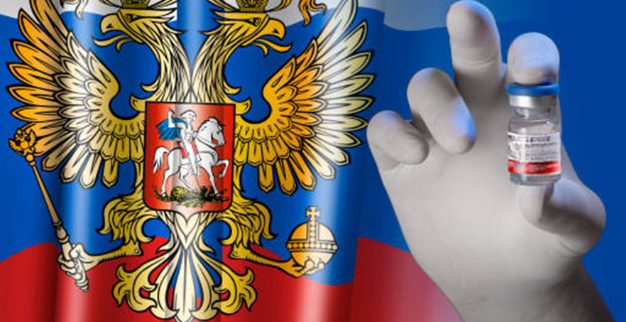
New Delhi: Mystic seers Baba Vanga and Nostradamus predicted medical advancements for 2025, including cures for cancer. While some of their prophecies are believed to be coming true, Russia‘s announcement of a personalised mRNA cancer vaccine at the start of the year looks far more complex and should not be viewed as a mystical prophecy.
The scientific community remains cautious, emphasizing the need for rigorous validation before any claims are made. Although mRNA technology holds potential to revolutionize cancer treatment, the lack of published clinical data and the gap between preclinical results and human trials raise doubts about its immediate viability.
Experts indicate that while the vaccine may transform cancer care in the future, only transparent research, clinical trials that are reviewed and published in reputed scientific journals and time will determine whether it can fulfill such bold promises.
“I have searched for data on this, but there is no published evidence available. In medicine, particularly in evidence-based practice, any claim must be backed by solid proof. Let me break my response into three parts: First, oncology is a field of ongoing breakthroughs, and mRNA technology holds immense potential due to its unique properties and our evolving understanding of cancer immunology. Second, regarding the claims made by this particular company, some preclinical mouse data suggests a 70 per cent reduction in tumor size.”
“However, there is a significant gap between mouse studies and human applicability. Until we see concrete data on safety, efficacy, and long-term impact, these claims remain unverified. Scientists rely on peer-reviewed journals and rigorous regulatory scrutiny before accepting new findings. As of now, the available information does not meet that standard,” said Dr. Sanjay Singh, Chief Executive Officer, Gennova Biopharmaceuticals Ltd.
Dr. Gaurav Narula, Professor of Pediatric Oncology & Health Sciences, Tata Memorial Center, said, “What we have seen so far are media reports, public statements, and announcements from influential figures. However, in science, we follow a principle: ‘In God we trust; all others must bring data.’ Unless the claim comes from divine intervention—which we know it doesn’t—we need data.”
“Currently, no clinical data is available. The journey from scientific discovery to clinical application is long. Exciting mouse data emerges in labs worldwide every day, but that doesn’t justify grand announcements. Even if they have progressed beyond that stage, human trials must follow: Phase 1 – Safety testing in a small group. Phase 2 – Efficacy trials in a larger cohort. Phase 3 – Extensive trials to confirm real-world effectiveness,” Dr. Narula explained.
“Unlike common infections, cancer affects a smaller portion of the population at any given time,” he continued. “If the vaccine is meant for those already diagnosed, we still need clinical trials involving hundreds of patients to establish its impact on tumor regression. The transition from promising mouse data to a working vaccine is a process that takes years. I am not dismissing the possibility, but I will wait for credible data before drawing conclusions,” Dr. Narula stated.
Informing that the field of cancer vaccines is gaining momentum, Dr. Harit Chaturvedi, Chairman, Max Institute of Cancer Care, said, “While early indications of progress exist, we are still far from clinical application. This is not about cancer prevention but rather treatment. The oncology community is optimistic, but we must acknowledge that false starts and exaggerated claims will occur. Just as targeted therapies and immunotherapies have revolutionized cancer treatment, mRNA-based approaches present a significant opportunity. However, real progress depends on rigorous scientific validation.”
Adding to it, Dr. Santhosh Devadas, Consultant Medical Oncology, Ramaiah Memorial Hospital, said, “Immunology and oncology are incredibly promising fields, and the future of cancer treatment likely lies in immunotherapy. I echo my fellow panelists in emphasizing the need for clinical validation. Right now, based on the available data, we are not even at Phase 0. However, there are promising developments elsewhere. For example, a recent Phase 2b melanoma trial on an mRNA vaccine, published in The Lancet, offers proof of concept. The foundation is being laid, but translating this into a real-world treatment will take time.”
Dr. Rajan Sriraman, Research Director, Reliance Lifesciences, explained, “In research, we often say: ‘Mice lie, and monkeys misbehave.’ Data from animal studies does not always translate to humans. Technically, the idea is feasible, but it requires extensive computational analysis and AI-driven antigen selection. This is a therapeutic—not a preventive—vaccine. It targets individuals already diagnosed with cancer, tailoring treatment to their specific tumor profile. However, at this stage, the available information does not provide enough evidence for meaningful conclusions. We remain in the realm of speculation rather than established science.”
He said, “The technology itself is exciting. Similar immunotherapy approaches have been explored before. In India, the Cancer Institute in Chennai has investigated personalized cancer vaccines.”
Further Dr. Sriraman elucidated that the fundamental idea is to train immune cells to recognize and attack cancer antigens. There are multiple ways to achieve this: using dendritic cells to present cancer antigens to immune cells, CAR-T cell therapy, where engineered lymphocytes express receptors that target cancer, and mRNA technology, which encodes proteins that help the immune system recognize tumors.
“Each of these approaches has its strengths and limitations. “A strategy that works for one cancer type may not work for another. Developing truly personalized vaccines requires complex genomic analysis and computational modeling. While the concept holds promise, we need extensive clinical validation before considering it a viable treatment option,” Dr. Sriraman added.
Stating that cancer treatment has evolved in phases, Dr. Singh said, “Initially, we relied on surgery. Then came chemotherapy, followed by targeted drugs and monoclonal antibodies. Now we have CAR-T therapy, which is improving outcomes, but it’s still not a permanent cure due to cancer’s ability to adapt.”
“mRNA technology has revolutionized cancer treatment, offering a paradigm shift rather than just incremental improvements. Before COVID-19, personalized mRNA cancer vaccines were not a reality, but now hundreds of trials are underway. While we may not eliminate cancer entirely, this is a transformative era in oncology,” he added.
Talking about the advantages of mRNA technology, Dr. Sriraman said, “In any therapy, speed matters. mRNA technology enhances the speed at which we can develop and deliver treatments. However, we still need to understand cell signaling and tumor microenvironments better.”
“Currently, many trials use mRNA vaccines alongside checkpoint inhibitors to enhance immune responses. Cancer isn’t just about tumor cells; the surrounding environment plays a crucial role in sustaining the disease. With deeper immunological insights and mRNA advancements, we can optimize treatment strategies. This is an exciting time in oncology,” he stated.
While Dr. Chaturvedi said, “This is a huge opportunity, and I want to emphasize that strongly. I have seen so many patients benefit at different points in their treatment journey—cases where we initially believed there was no hope.”
Dr. Devadas shared a case involving melanoma, where the patient was initially informed about limited treatment options. However, later the patient was put on immunotherapy, with the son initially procuring the drugs. Over time, the treatment became more widely available, and the patient survived for seven to eight years, exceeding expectations.
“This isn’t an isolated case. Time and again, we see patients benefiting from new discoveries—one breakthrough at a time. When they relapse, another innovation comes along that extends their survival. What starts as incremental progress eventually becomes monumental, transforming their lives. This isn’t just happening for a few individuals—there is a significant subset of patients experiencing these advancements,” he added.
Summing up, Dr. Narula said, “The recent mRNA vaccine announcement is exciting and full of potential, but transitioning from potential to proven patient benefit takes time. While patients may not immediately benefit, research is advancing rapidly.”
“Groundbreaking therapies are already improving survival and quality of life. Although we must temper expectations regarding mRNA technology in the near term, there is significant progress, and patients should stay hopeful for future breakthroughs.”
The race for cancer vaccines is likely to heat up. Currently over 400 clinical trials are listed for cancer vaccines across the world. Last year in August, doctors in the UK commenced trials on a mRNA vaccine for lung cancer. Known as BNT116, the vaccine made by BioNTech recruited patients with NSCLC at 34 research sites including the UK, US, Germany, Spain and Poland.
The relevance of finding a cancer vaccine cannot be overstated considering one in five people are expected to get cancer in their lifetime while about 20 million new cases were identified in 2022 alone, reports say.
For a more detailed explanation watch the webinar: https://health.economictimes.indiatimes.com/webinar/russias-personalised-cancer-vaccine/3017





